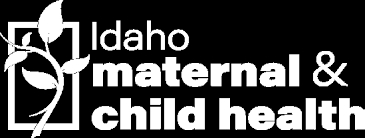IPUL - Health
Home » Health
How IPUL can help you with healthcare related questions
Understanding healthcare systems for children with disabilities or special healthcare needs can feel overwhelming. Idaho Parents Unlimited is here to help make the journey easier, at no cost to parents. As parents of children with disabilities, our Parent Education Coordinators bring their lived experiences, coupled with professional development, to provide you with resources you can use. Parent Education Coordinators can assist you with things like: navigating applications for Medicaid programs; strategies to maintain positive partnerships with providers; transition to adulthood questions; and so much more. IPUL is here to provide you with resources and information to assist you in becoming an informed and empowered champion for your child’s healthcare needs.

Idaho Parents Unlmited is the Family to Family Health Information Center (F2F-HIC) for the state of Idaho
Family To Family Health Information Centers (F2F-HIC) are established to provide information and assistance to families of children and youth with special health care needs.
As a parent led organization, we recognize that caring for children with special health care needs is often complex. Like you, we are parents of children and young adults with physical, developmental, and mental health challenges, and we have firsthand experience negotiating the maze of health care services and programs in our state.
We assist families of children with special health care needs to become informed, experienced, and self-sufficient advocates for their children and themselves.

Idaho Parents Unlimited is the Family Voices Affiliate Organization (FVAO) in Idaho.
Family Voices aims to achieve family-centered care
IPUL is the Family Voices State Affiliate Organization. for all children and youth with special health care needs and/or disabilities.
We provide families tools to make informed decisions, advocate for improved public and private policies, build partnerships among professionals and families, and serve as a trusted resource on health care.

Idaho Parents Unlimited is the Family Engagement Subgrantee of the Idaho MCH Program
Idaho’s Maternal and Child Health (MCH) Program is committed to improving the health and well-being of mothers, infants, and children, including children and youth with special health care needs (CYSHCN), and their families, and is funded by the Title V MCH Block Grant.
More information here:
https://healthandwelfare.idaho.gov/health-wellness/womens-health-pregnancy/idaho-maternal-and-child-health






